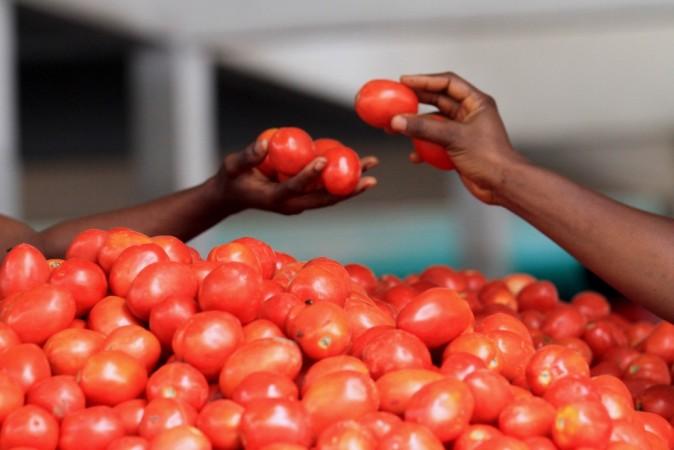
Scientists have cracked the genome of a domesticated tomato, Solanum lycopersicum, and its wild relative which could help the breeders to identify genes necessary to breed tastier and healthier new varieties, according to a study published in the Nature journal.
A team of international scientists from the Tomato Genome Consortium (TGC), including Indians, sequenced the genome of domesticated tomato cultivar 'Heinz 1706' and a draft sequence of its wild ancestor olanum pimpinellifolium that reveals the order, types and positions of the 35,000 genes that are arranged on 12 chromosomes.
Genome sequencing or DNA sequencing is done to study the different type of proteins, which are important building blocks of life, found in these organisms. By understanding how the presence of these proteins make the species different from each other, it could help crop researchers improve the yield, nutritional content, taste and color of tomatoes, according to LiveScience.
"For any characteristic of the tomato, whether it's taste, natural pest resistance or nutritional content, we've captured virtually all those genes," study researcher James Giovannoni, of Cornell University, said in a statement, according to LiveScience.
"Tomato genetics underlies the potential for improved taste every home gardener knows and every supermarket shopper desires and the genome sequence will help solve this and many other issues in tomato production and quality," he added.
According to the scientists, the genome sequencing will also help them to understand why the tomatoes are different from their closely related plants including potato, pepper and coffee which belong to the Solanaceae or nightshade family of plants.
These plants have the similar set of genes but are different from each other. The researchers can also identify the important genes in the Solanaceae family with the gene that they have sequenced.
Speaking to the reporters in New Delhi, Akhilesh Kumar Tyagi, director of National Institute of Plant Genome Research (NIPGR) and one of the scientists from the consortium said that the research would help scientists understand how the tomato has diversified and has adapted to new environments.
The International Tomato Genome Sequencing Project was begun in 2004 by an international consortium. Apart from Indians, researchers from 14 countries including Korea, China, the United Kingdom, the Netherlands, France, Japan, Spain, Italy and the United States have taken part in sequencing the tomato genome.













!['It's not Mumbai traffic, it's air traffic': Suriya apologises to Mumbai media after paparazzi yelled At Him for making them wait for hours [Watch]](https://data1.ibtimes.co.in/en/full/806234/its-not-mumbai-traffic-its-air-traffic-suriya-apologises-mumbai-media-after-paparazzi.jpg?w=220&h=138)



